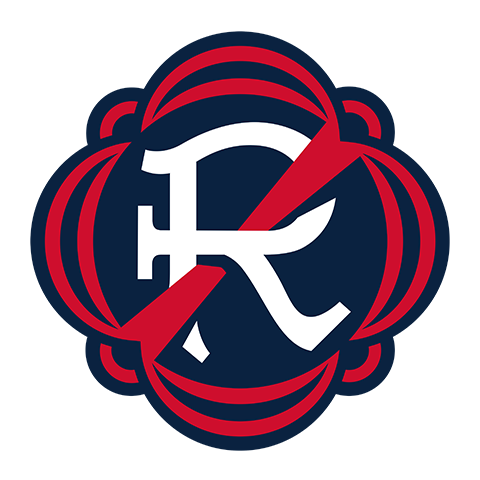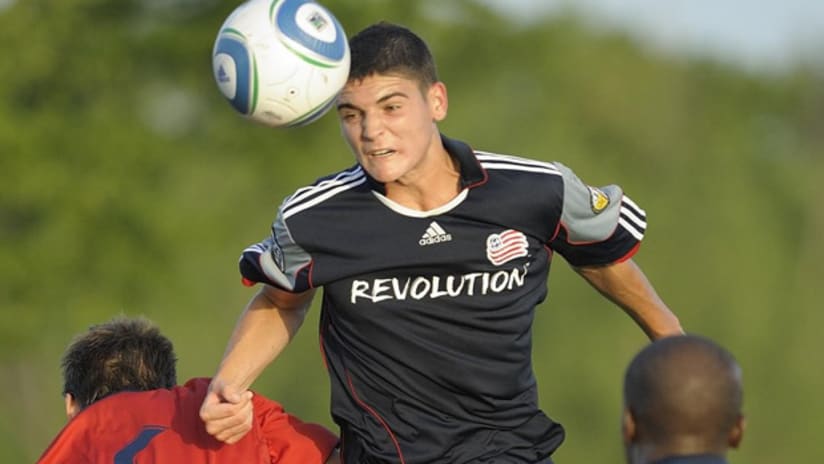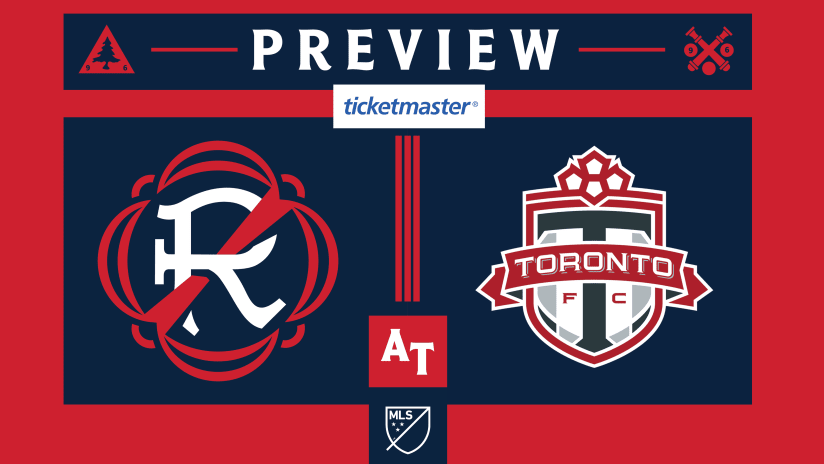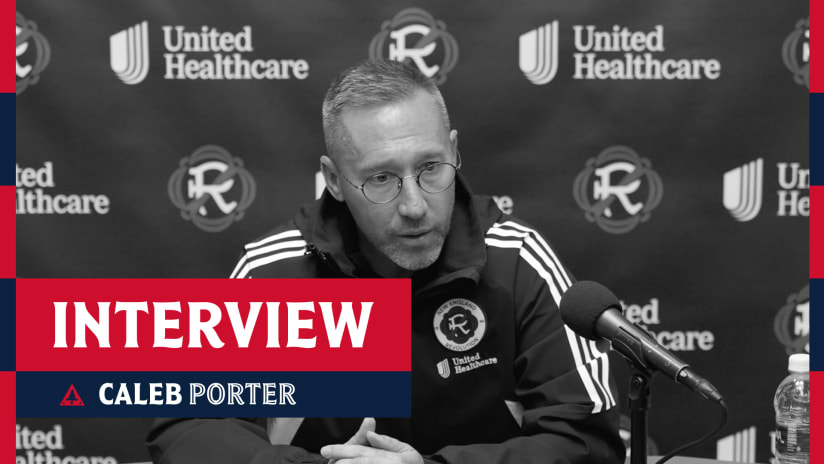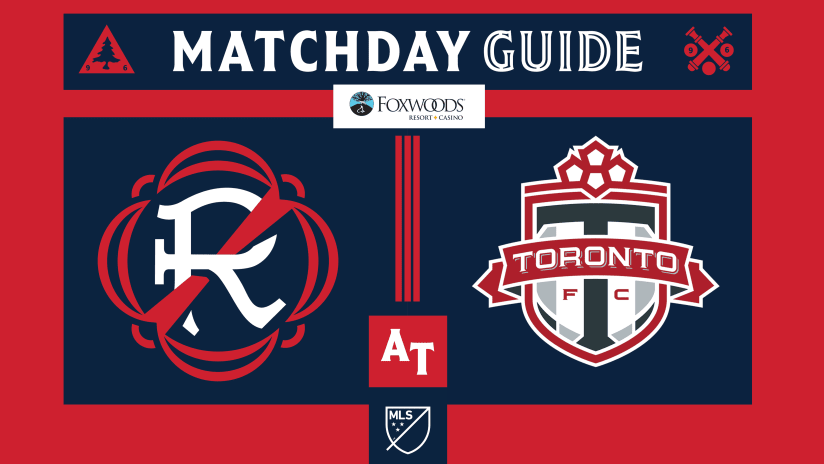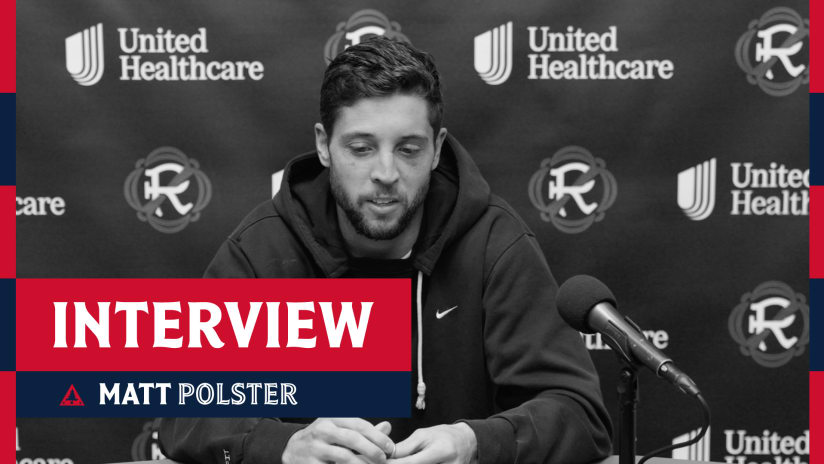FOXBOROUGH, Mass. – On Monday morning, Diego Fagundez officially became the New England Revolution’s first-ever Home Grown Player by signing a professional contract directly from the club’s academy. This coming Saturday afternoon, he’ll pull on his Revs jersey and take the field for a regular-season game in New York.
But the 15-year-old Leominster, Mass., resident won’t be representing the first team. Not yet.
Instead, Fagundez will be lining up for the Revolution’s Under-16 team, which – along with the club’s Under-18 side – opens the 2010-11 U.S. Soccer Development Academy season this weekend with a pair of road games against FC Westchester and Albertson SC.
The Revolution’s youth teams enter their third year in the Development Academy with high hopes following tremendously successful 2009-10 campaigns. Last year, both sides reached the postseason for the first time in program history – the Revs launched their Youth Development Program in May of 2008 – and the U16s barely missed out on a trip to the national finals by virtue of a tiebreaker.
Now under the direction of the recently-promoted Bryan Scales – who took over as Director of Youth Development in November after serving as head coach of the U16 team last season – the Revs are ready to continue the process of building an elite youth program.
“I’m excited – I think the whole staff is excited – to see how we start, see what some of the new players are all about and figure out what our starting points are at this stage,” said Scales, who was named the Northeast Division coach of the year by U.S. Soccer last season. “I think we took a big step forward (last year) and now it’s just a matter of starting out the right way and doing the right things throughout the season.”
For teams in the Northeast, the Development Academy season doesn’t typically get underway until February or March, but a scheduling quirk means the Revs will open with a pair of regular-season, non-division games this weekend. Both the U18s and U16s will follow that up with a trio of games at the U.S. Soccer Development Academy Winter Showcase in Phoenix the first weekend in December, but then won’t resume their league schedules until early March.
With five matches to be played in November and December before a full three-month break from game action, Scales plans to use the abnormal schedule to his advantage by treating the upcoming games like an extended preseason.
“These games are important in [terms] of assessing where everybody is soccer-wise and fitness-wise,” he said. “We can kind of get a feel for where our player pool is and start to plan for the winter time and what needs to be done as we head into the regular academy season in March.
“These games (against Westchester and Albertson) don’t come at a convenient time, but they’re two good games for us against two good teams,” Scales continued. “It gives us an opportunity to get out of the gates and see where we are as we head towards Phoenix in a few weeks. In essence, it’s a preseason, so that’s how we’ll treat it.”
The timing of the games is inconvenient because many of the Revolution’s youth players are still competing for their high school teams, making full attendance at Revs training sessions a rarity for the past two weeks.
As a result, the U18s and U16s have held joint training sessions to account for the missing numbers. But as fall progresses into winter and the high school seasons come to a close, full focus will be shifted to the Revs and the teams will be able to split and work specifically with their own coaches.
Luckily for the Revolution, familiarity between players and coaches isn’t much of an issue. After working through the growing pains of a newly-formed program in 2008-09, the Revs’ youth teams showed rapid development last season as players and coaches returned and began to form lasting relationships. This year, even further continuity will only help to maintain the program’s progression.
“I think that’s natural,” Scales said of the academy’s improvement from year to year. “When you have a brand like the New England Revolution, it’s enticing to players and parents. It’s fully-funded and it’s at no cost to the players, so you can really go out and find the best kids.
“You want to make sure that they’re in a good professional environment, being challenged every day and learning what it’s like to be a pro,” he continued. “That’s all part of the process – the development process.”
A shining example of the Youth Development Program’s success is Monday’s announcement of Fagundez as the Revolution’s first Home Grown Player. By scoring 20 goals in 2010 and being named to the U.S. Soccer Development Academy National Starting XI, the youngster displayed enough promise for the Revs to offer him a professional contract and ensure his development will continue in Foxborough.
While Fagundez is the first player to sign directly from the Revs’ youth squad to the first team, the hope is that he certainly won’t be the last.
“Obviously the recent news with Diego is exciting for all of us,” said Scales, who coached Fagundez on the Under-16 team last year. “We’re hoping and fully expect that down the road there’ll be more guys like that. It’s exciting.
“It’s a proud moment for us as an academy, and I’m sure for the organization,” he continued. “You hope that if you do things the right way, there’ll be kids who come along who have the chance to represent the first team.”
Scales believes the key to seeing continued success at the youth level begins with a focus on the development of individual players as opposed to a singular spotlight on results. While the outward goal is for both the U18s and U16s to reach the playoffs for the second straight year and hopefully earn a trip to nationals, the growth of the athletes – both in terms of skill and maturity – is most critical.
“We want to see players progress from the beginning of the year to the end of the year,” said Scales when asked about his aspirations for 2010-11. “I think last year we had a lot of players who really developed from the beginning of that cycle to the end. If we can continue to do that, then I think the results will take care of themselves and we’ll have teams that will represent the program and organization the right way.”
As for this weekend, Scales is ready to let the games begin.
“Year Two was a step forward and we’re hoping that Year Three is another step forward,” he said. “We’ll see where it goes.”
